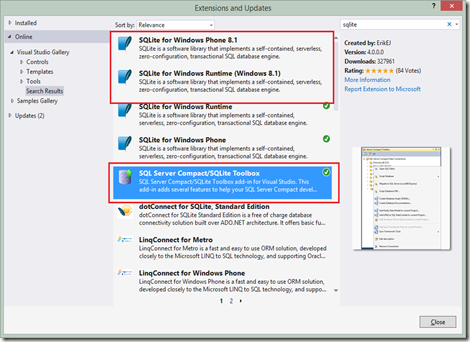
SQLite is widespread database engine, which is used all over the world. Almost all computers and mobile phones and many apps are imbedded with it, because we can rely on its format. This is why we have SQLite manager both for Google Chrome and Firefox.
SQLiteManager allows you to work with a wide range of sqlite 3 databases: plain databases, in-memory databases, AES 128/256/RC4 encrypted databases, SQLCipher encrypted database and also with cubeSQL server. A single license is valid for up to 2 computers (if not used at the same time). No subscription required. Free 4.x updates. SQLite Manager is a small program to manage SQLite databases. With SQLite Manager, you can edit table fields, create table generation, add or edit table, copy schema from SQL Server or MDB, copy table contains from SQL Server or MDB, and do multiple statements execution.
SQLite database browser extensions allow us to interact with one or several databases in the same way we do in SQLite desktop version. We can view the existing SQLite files or simply create a new one directly in our browsers.
Introduction
There are two browsers where you can install the addon to: Firefox and Google Chrome. Both Firefox and Chrome SQLite plugins give us the ability to store the created file in the internal memory of the browser to save it later.
What is more, these SQLite database extensions are equipped with math.js, what makes us possible to operate with the database to the full extent of our power. Math.js have a great amount of built-in functions and constants, gives us a unified possibility to work with various data types. Let’s talk about both extensions.
SQLite Firefox addon
Step 1
We need to find the SQLite Manager in the official Firefox addon market and add it to your Firefox browser.
SQLite Manager in Firefox Add-ons
Step 2:
After the installation, the Firefox SQLite Manager icon will appear in your toolbar.
Firefox toolbar with a Firefox SQLite Manager
Step 3:
Things are easy, you just have to click on the icon and the SQLite Manager will open in a new tab. You can click several times and several unrelated and separately working managers will open.
SQLite Manager tab in Firefox
Step 4:
We can either create or drop an existing SQLite database.
Create a new Database command in Firefox SQLite Manager
Step 5:
After this, we can manipulate with our SQLite database. For example, we can run a command:
The SQLite plugin will show us our table.
Opened table in Firefox SQLite addon
SQLite Google Chrome addon
As we did it with Firefox, we need to find the SQLite Manager in the official Chrome addon market and add it to your Chrome browser.
SQLite Manager in Google Chrome Extensions
After the installation, the Google Chrome SQLite Manager icon will appear in your toolbar.
Now we just click on the Chrome SQLite Manager icon and a new tab with the manager opens. The same as in Firefox, we can open several tabs with separately working database managers. Chrome addon displays a long welcome message, unlike Firefox plugin, but this does not affect the functionality of both extensions at all.
Acidized wav files logic. We can also either create or drop an existing SQLite database to the Chrome.
Create a new Database command in Google Chrome SQLite Manager
After this, we can operate with our SQLite database in Chrome. Here we also can run a command:
The SQLite Chrome plugin will show us our table.
Opened table in Firefox SQLite addon
Conclusion
In the conclusion we want to say that both Firefox SQLite plugin and Chrome SQLite plugin provide comfortable work with SQLite databases. They allow users to use all the functions of SQLite (database creation or opening, view reports, running commands, etc.) to the full without feeling the need to install the desktop version of database engine or any additional applications. We have only to select our favorite browser and install the necessary SQLite database extension.